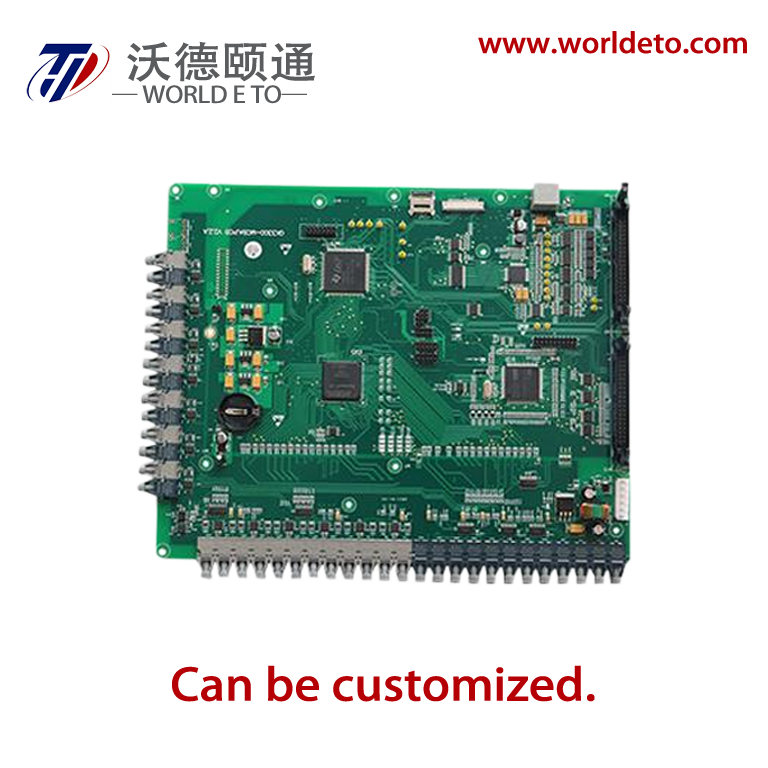
In the rapidly evolving world of industrial power systems, the need for efficient, reliable, and high-performance components has never been more critical. One of the key innovations that have significantly contributed to these advancements is the Insulated Gate Bipolar Transistor (IGBT) module. IGBT modules are integral in a wide range of applications, from renewable energy systems to electric vehicles and industrial automation. By combining the best features of transistors and thyristors, IGBT modules have revolutionized industrial power systems by improving efficiency, reducing energy losses, and enabling sophisticated control over power conversion.
Understanding IGBT Technology
IGBT modules are semiconductor devices that are primarily used for switching high voltages and currents in power electronics. These modules combine the benefits of both MOSFETs (Metal-Oxide-Semiconductor Field-Effect Transistors) and BJTs (Bipolar Junction Transistors), allowing them to handle high voltages and currents with improved efficiency compared to traditional components. The IGBT is designed to switch large amounts of power with minimal energy loss, making it highly effective for various industrial applications.
At the core of an IGBT module is its ability to act as a switch that turns electrical currents on and off rapidly, controlling the flow of power through a system. This switching capability allows for precise control over the amount of energy that is delivered to industrial equipment, improving performance and energy efficiency.
IGBT Modules in Industrial Power Systems
-
Improved Efficiency in Power Conversion One of the most significant advantages of IGBT modules is their ability to improve the efficiency of power conversion systems. Power conversion is a critical process in industrial applications where AC (alternating current) power needs to be converted to DC (direct current) or vice versa. Traditional power conversion systems can suffer from significant energy losses, especially at high switching frequencies. IGBT modules, however, offer minimal conduction losses and reduced switching losses, making them ideal for use in power supplies, motor drives, and renewable energy systems.
In applications like solar inverters or wind turbine converters, where efficiency is paramount, IGBT modules help achieve better power conversion with less heat generation, which ultimately leads to reduced energy waste and lower operational costs.
-
Enhanced Motor Control and Variable Speed Drives In industrial environments, electric motors are essential to driving machinery, but they often consume large amounts of power. The implementation of IGBT modules in motor control systems allows for better regulation of motor speed, torque, and power. With the help of IGBT-based variable frequency drives (VFDs), industries can adjust the speed of motors in real time, leading to energy savings, reduced wear on mechanical components, and more precise control of machinery.
IGBT modules have made it possible to implement more sophisticated control strategies, such as regenerative braking in electric motors, which recovers energy during braking and returns it to the system, further enhancing efficiency and reducing energy consumption.
-
Compact Design and Reliability As industrial power systems have become more compact and energy-efficient, there has been an increasing demand for smaller, more reliable power modules. IGCT module s play a key role in this by providing a high power density in a relatively small footprint. This compact design makes it easier to integrate IGBT modules into various power systems, reducing the size and complexity of electrical components without compromising performance.
The reliability of IGBT modules is another factor that has helped revolutionize industrial power systems. These modules are designed to withstand high voltage and current levels, as well as harsh environmental conditions. Their robustness ensures long-term, trouble-free operation in demanding industrial environments, reducing the likelihood of system failures and minimizing maintenance requirements.
-
Application in Renewable Energy The rise of renewable energy sources, such as solar and wind power, has further emphasized the need for efficient power conversion. IGBT modules are pivotal in these applications, enabling the conversion of DC power generated by solar panels or wind turbines into AC power that can be fed into the electrical grid. The efficient switching and minimal energy losses of IGBT modules make them the ideal choice for inverter systems in renewable energy setups, contributing to the growth and integration of green energy technologies.
Conclusion
IGBT modules have played a transformative role in revolutionizing industrial power systems. Their ability to improve efficiency, enhance motor control, and enable compact, reliable designs has made them an essential component in a wide range of industries. From renewable energy to automation and motor drives, IGBT modules have paved the way for more energy-efficient, cost-effective, and reliable power systems. As industrial power systems continue to evolve, IGBT modules will remain at the forefront of innovation, driving the next generation of power conversion technology.
